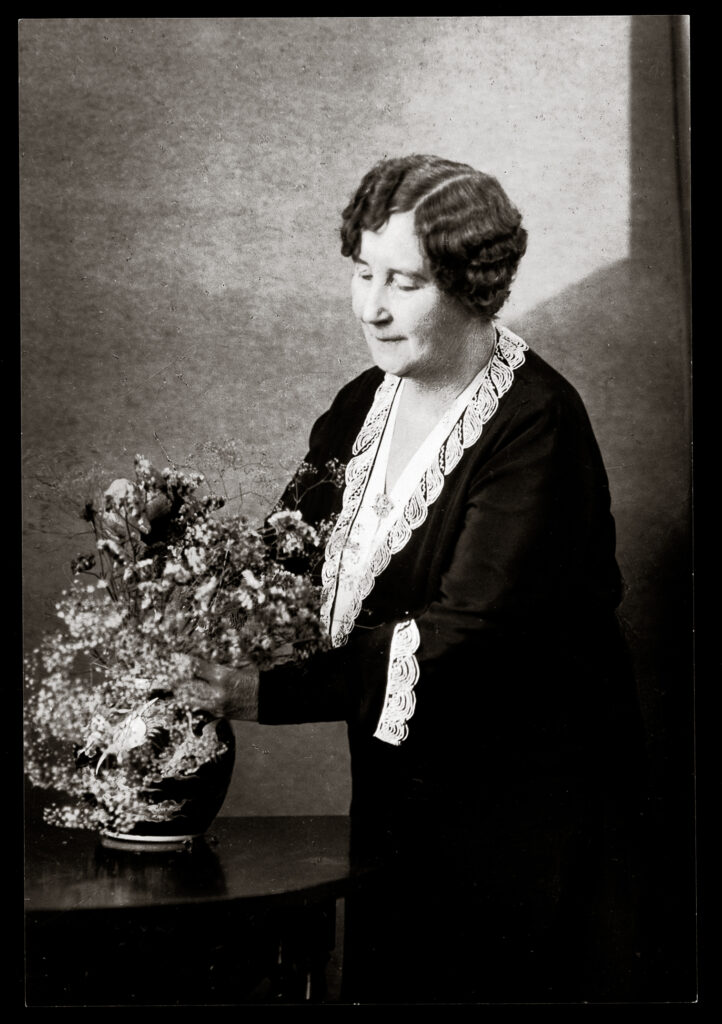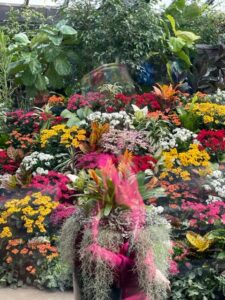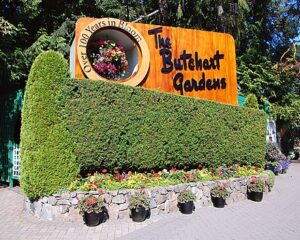The Lady who knew “next to nothing” about Gardening.
Jeanette Foster Kennedy was born in Toronto, Ontario, on February 26th, 1868, one hundred and fifty-five years ago, but her presence on Vancouver Island is still very much alive. Although her ancestry was both Canadian and Irish, she was destined to become famous on the Saanich Peninsula on Vancouver Island in western Canada.
Jenny (as she preferred to be called) lived with her mother until she was 12. Her father, an Irish seed merchant, had died the same year Jenny was born. She was an adventurous child, full of energy and fun. She could out-skate and out-ride most boys her age, and riding horses was her special passion.

In 1880, when Jenny was barely 12 years old, her mother also died and Jenny moved to Owen Sound to live with an aunt, who also taught her some domestic skills. She did not, however, lose any of her sense of adventure during her teen years. Always wanting to try new things, she made many trips up in a hot air balloon and even flew at the controls of one of the new “flying machines” with French aviator, Louis Blériot, the man who flew the English Channel solo from Calais to Dover in 1909.
Despite all her many jaunts, Jenny did not neglect her education. She attended Brantford Young Ladies College and graduated in 1885 with a scholarship to study art in Paris.
But at 18 years old, Jenny had fallen in love and, determined and headstrong, she decided to decline an opportunity to travel in favor of the marriage proposal she received from Robert Butchart, nine years her senior, whose career in the marketing of cement was about to take off in a big way.
Jeannette Kennedy was, of course, the famous Jenny Butchart who would later turn her garden into the world-renowned Butchart Gardens on the Saanich Peninsular of Vancouver Island.
Jenny and Robert Butchart and their family moved west in 1903, as Robert intended to come in on the ground floor of the manufacturing of cement here. While exploring the Tod Inlet, he discovered just the right location for establishing his cement plant, and the surrounding area seemed ideal for a family home. By then, Jenny and Robert had two daughters, Jennie and Mary.
They called their family home “Benvenuto” meaning welcome in Italian, and Jenny as its chatelaine certainly made sure all her visitors were made welcome. While her husband was busy with his business, Jenny, who admitted to “knowing next to nothing about gardening,” planted some sweet pea seeds and a single rose bush which she had received as a gift, little realizing this was to be the beginning of one of the world’s greatest horticultural ventures.
 After the old cement quarry dried up, Jenny extended her small garden by transforming the disused quarry into the legendary Sunken Garden. People slowly began to come from all over the world to see the famous Butchart Gardens and the custom of Jenny serving everyone tea became very popular. By 1915, it was reported that tea had been served to over 18,000 people.
After the old cement quarry dried up, Jenny extended her small garden by transforming the disused quarry into the legendary Sunken Garden. People slowly began to come from all over the world to see the famous Butchart Gardens and the custom of Jenny serving everyone tea became very popular. By 1915, it was reported that tea had been served to over 18,000 people.
Jenny’s talent for making things grow increased through the years and, despite her position and wealth, she was described as “very down-to-earth” and always lots of fun. Her daughter, Mary, married William Todd in 1910. Todd was the grandson of salmon canning magnate Jacob Hunter Todd. They had three children, Terry, Terese and Derek. Jenny’s other daughter, Jennie, married Harry Ross and they had one son, Ian. After Harry Ross’ death, Jennie married the dashing Andre Chrinsky-Chikhmatoff, a Russian Prince some years her junior. but this marriage and the only Butchart royal connection, did not last long.
Jenny Butchart was one of the first ladies in Victoria to own an electric car and she and her husband became passionate about the automobile, entering most early automobile events in Victoria.
 Robert died in 1943 and Jenny in 1950 and by then the war years had taken a toll on the Gardens. Grandson Ian Ross was given the Gardens as a 21st birthday gift from his grandparents and, upon returning from service after the war, he set about putting them back into shape. It was an enormous project but one he accepted with relish. Under his guidance, the Gardens once more came alive and grew.
Robert died in 1943 and Jenny in 1950 and by then the war years had taken a toll on the Gardens. Grandson Ian Ross was given the Gardens as a 21st birthday gift from his grandparents and, upon returning from service after the war, he set about putting them back into shape. It was an enormous project but one he accepted with relish. Under his guidance, the Gardens once more came alive and grew.
Following Ian Ross’ death, ownership of the Gardens was passed to his son Christopher, a pyrotechnic genius who started the tradition of the summer firework displays. Christopher’s untimely death shortly afterwards placed ownership and the running of the Gardens in the hands of his sister, Robyn.
The Butchart name has remained prominent in Victoria for well over ten decades and will continue to do so for as long as Jenny Butchart’s Gardens delight visitors from around the world. Glorious and resplendent, the Gardens today are comparable to any one of the Seven Wonders of the World, initially created by a lady who knew ‘next to nothing’ about gardening – but was always up for a challenge.
